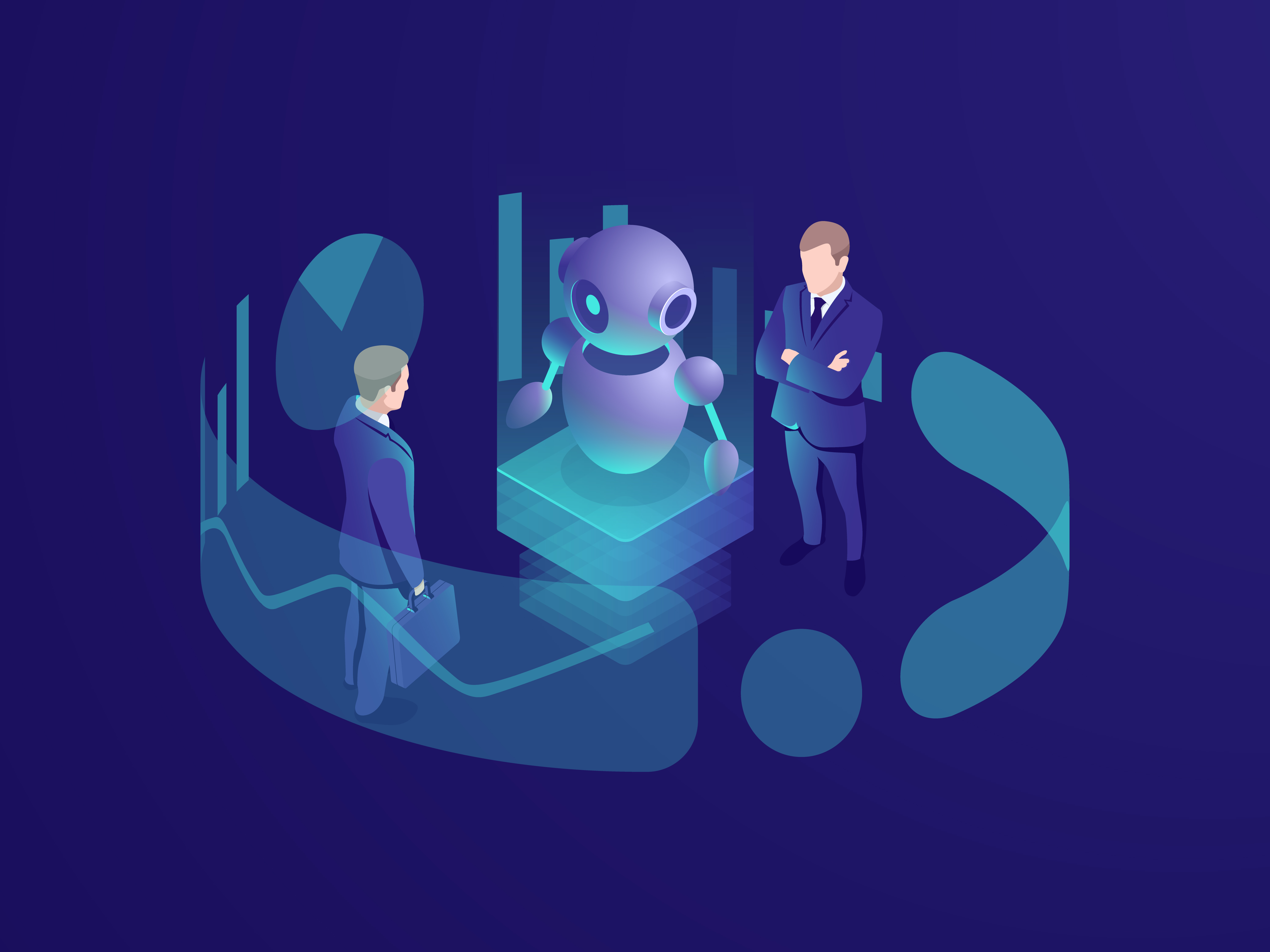
How to Start a Recruitment Business with No Prior Experience

3 minute read
Recruiting, which is now a human-run process, will soon be a robot-run process that will transform the HR function.
We live in an age where AI is a significant part of our personal and professional life. It is no longer just about crunching numbers and analyzing data. It has gone beyond that and is now also being used for in-person human activities such as recruiting and interviewing.
Robot recruiters, as they are now being called, are proving their worth to recruitment teams in several organizations. According to SHRM, 89% of companies globally are already using AI in some capacity in their HR operation. The robot recruiters are helping recruiters evaluate the candidates even before their first interaction while providing benefits such as personalization, efficiency, and data-informed decision-making.
Before stressing about being taken over by robots, let’s first get a clear understanding of what robot recruiters are and their role in talent acquisition.
Fast facts
Gartner report states that 86% of organizations are already incorporating robot recruiting to interview candidates in their hiring process.
Robot recruiting is a virtually automated hiring process wherein intelligent algorithms handle tasks like evaluating and shortlisting candidates. Those intelligent algorithms utilizing AI and machine learning are called robot recruiters. They can perform AI-driven video interviews independently and assist companies in extending the candidate pool. From scheduling to interviewing, the robot recruiters simplify the hiring process by leveraging AI, machine learning, and automation.
Lou Adler, CEO of the Adler Group, calls recruiting technology the "smartification" of recruiting.
There is not one but three significant benefits that robot recruiters offer. All these benefits not only streamline the hiring process but also provide necessary advantages such as freeing up time for recruiters and helping them select candidates who best fit the different positions.
One of the most challenging parts of every hiring process is finding the right candidates within a large applicant pool. Robot recruiters can effectively process the substantial data pool and find the candidates who meet the search criteria. Robot recruiters improve the quality of hires by efficiently searching for the most suitable candidates while removing any racial, gender, disability, and other human biases.
Hiring the best talent is a long, exhausting, and repetitive process. Recruiters gradually become less productive since it takes a lot of time and human effort. Robot recruiters, however, reduce the time spent on these repetitive and mundane tasks. By managing interview scheduling and the application process, they speed up the hiring process and recruiters can better utilize this saved time in engaging with applicants, fostering connections, and enhancing the overall candidate experience.
Between recruitment efforts, training costs, and productivity losses, it costs companies a small fortune to replace a single employee. On the other hand, robotic recruiters have the quality to analyze a large pool of data that helps them better understand candidates and predict who will be a successful fit in a role. In fact, new research by the National Bureau of Economic Research suggests that intelligent algorithms can make better hiring decisions than humans. And the decisions made by robot recruiters have helped companies retain the talents 15% more than usual, thus reducing the cost per hire.
Gecko.ai
Mya
AutoView
HireVue
Paññã
With AI assessment, there is a risk that applicants won't even be aware of the evaluation criteria or how to answer appropriately. Additionally, a few issues with how AI understands verbal and visual signals might lead to prejudice.
It has been shown that the AI algorithms used by robot recruiters may accidentally duplicate human prejudices. Certain human traits or features could be incorrectly linked to candidate quality, and certain phrases might lead to a skewed evaluation. In a well-known instance, Amazon scrapped its experimental AI candidate rating tool after being discovered anti-women.
Considering that robotics in the field of human resources is still under research, it is recommended for recruiters to manually analyze the recorded version of each such robotic interview conducted and optimize the same. Especially, robotic interviews are time saving alternatives for traditional prescreening interviews where you can feed a set of questions and test and train your bot to analyze the candidate response.
However, robot recruiters with data driven research and development could potentially solve many human flaws since they never get tired or impatient, are immune to distractions and other people's charm, and always follow directions.
Automation of the HR and hiring process is inevitable. It was once considered a possibility, but today it plays a crucial role in the hiring process. And it will continue to do so in the future, too. Because a chatbot or robot recruiter takes care of regular hiring procedures, frees up the recruiter's time, and finds creative solutions to everyday issues.
From contacting talents to answering queries in real-time, recruitment chatbots simplify the recruitment process and reduce workload. And when coupled with talent crowdsourcing, you can eye a large applicant pool with skilled and experienced candidates who are a perfect fit for the position. Given all these benefits, it becomes evident that robot recruiters are the future of talent acquisition.
